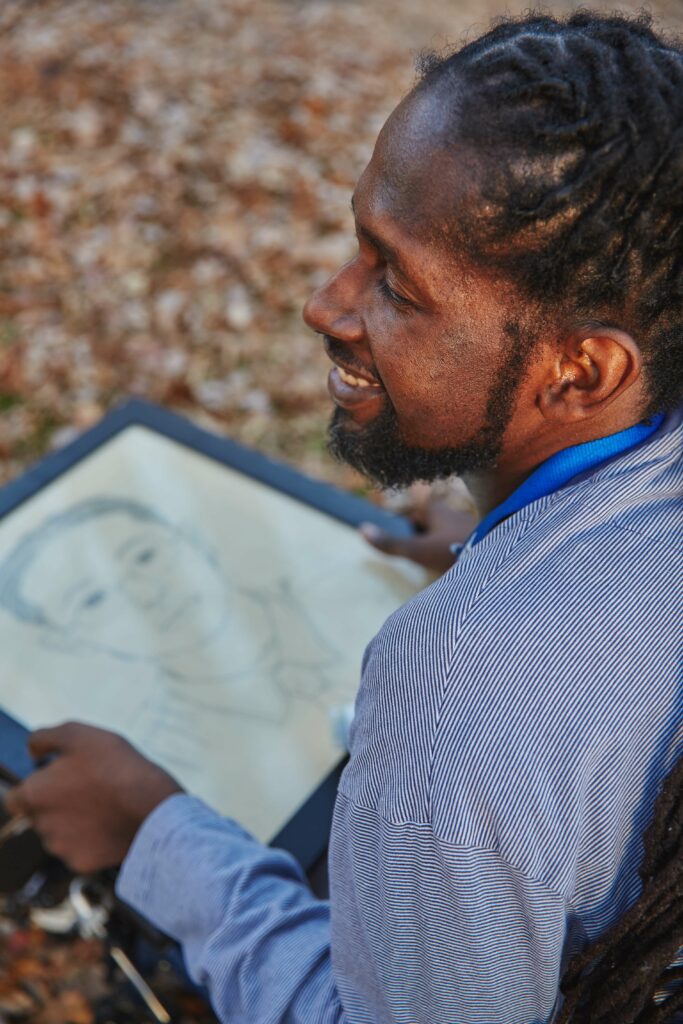Quinnell's Story

A burgeoning artist, who once had his artwork adorning the walls of the Newark Museum of Art and imagined a life as an architect, Quinnell now dreams of “building up people instead of buildings” after a life-changing diagnosis of Multiple Sclerosis, at the age of 18.
Quinnell, a 33-year-old man, first came to Disability Rights New Jersey in 2014 seeking assistance advocating for his assistive technology needs to help him in his schoolwork with special devices for his computer. Through the years, we advocated for his healthcare services and medical needs including acquiring an ultra-lightweight wheelchair that provides him with ease of movement, making it possible to maneuver throughout his day exerting less energy. This is increasingly important as his MS progressed in damaging his spinal cord .
In his youth, Quinell prided himself on being the Head Lifeguard, a Varsity Swimmer and Varsity Water Polo Captain. He was determined to integrate his passion for the arts into a career in architecture with his passion for the arts. As he began his college years, he enjoyed independence like a typical co-ed, driving around to different jobs and school events, but challenges -arose as the strength in his body diminished and pain made him reliant on others. Coupled with failing eyesight, MS eventually stole his ability to paint and draw as he always had. Holding a pencil and other tools to create the precise lines and measurements required in the design of a building took became impossible. Architecture would no longer be his future.
Many people who experience this depth of loss risk sinking into despair. Not Quinnell – he has never given up fighting. While the disabilities he experiences changed his body and his future, his resolve to remain positive and effective in his life is unchanged. Quinnell maintains his commitment to a life of giving and gratitude every day.
With a renewed purpose and perspective about his MS, Quinnell eventually returned to school to study social work. Today, Quinnell expresses himself through poetry and aspires to be an example for others in the disability community.
“Through the approach to life I was following when this disability came about, I realized I had to keep working toward accomplishing something better, rather than just rolling around with a smile on my face. So, I continue to seek work and education and always look at the glass as half full…always maintain an optimistic attitude. Life is a great as you make it!”
Quinnell

